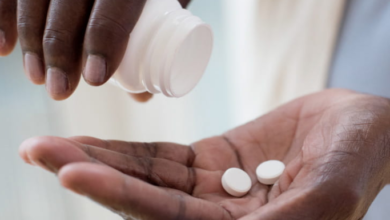“Learning from the Eradication of Smallpox: Lessons for Public Health Today”

In 1980, smallpox was officially declared eradicated, marking a monumental achievement in the history of public health. However, it wasn’t until 1996, during my internship at the World Health Organization, that I delved into the intricate and captivating narrative of this disease’s conquest. As a college student in the 1990s, I was captivated by the monumental efforts required to eliminate a human disease from the face of the earth for the first time.
Smallpox:
Over the years, I found myself repeatedly drawn to this history, seeking inspiration and guidance on how to tackle contemporary public health challenges with greater ambition. In the late 1990s, I had the privilege of meeting healthcare professionals and eradication campaign workers who had played pivotal roles in stopping the spread of smallpox. Yet, I realized that the narrative of this remarkable achievement had primarily been told from the perspective of white men from Western nations, neglecting the invaluable contributions of countless local public health workers in South Asia.
Determined to preserve this untold history, I embarked on a journey to capture the stories of those who had fought tirelessly against smallpox in South Asia. This endeavor led to the creation of “Epidemic: Eradicating Smallpox,” an eight-episode podcast documentary series.
My fieldwork commenced in the summer of 2022, as I traveled to India and Bangladesh, the epicenter of the smallpox eradication efforts. There, I connected with aging smallpox workers, many in their 80s and 90s, who had played pivotal roles in tracking down every last case of smallpox and vaccinating exposed individuals. Despite the passage of time, many of these veterans had lost touch with one another, their friendships forged in an era before the widespread use of long-distance communication.
Through interviews and conversations, I sought to uncover the strategies and challenges faced by these unsung heroes. Their stories revealed not only the triumphs but also the failures of the eradication campaign. Despite its success in halting the spread of smallpox, the program often fell short in addressing the basic needs of the communities it aimed to serve.
One of the key lessons from the smallpox eradication program was the importance of building trust and fostering partnerships with local communities. By leveraging cultural practices and traditions, healthcare workers were able to overcome vaccine hesitancy and gain acceptance for the eradication campaign. However, the program’s focus on eradicating the disease often overshadowed the pressing needs of communities grappling with natural disasters, civil unrest, and famine.
The podcast series also shed light on the enduring legacy of individuals like Mahendra Dutta, who challenged conventional approaches and advocated for innovative strategies to combat smallpox. Dutta’s insistence on adopting a more targeted vaccination approach, known as “search and containment,” proved instrumental in curbing the spread of the disease.
However, amidst the triumphs of the eradication campaign, there were also stories of forgotten heroes like Rahima Banu, the last person known to contract naturally occurring smallpox. Despite her pivotal role in the eradication effort, Banu and her family continued to live in poverty, deprived of access to basic healthcare and education.
The lessons from the smallpox eradication campaign resonate deeply in today’s world, where public health crises continue to pose significant challenges. As we confront new threats like the COVID-19 pandemic, it is imperative that we learn from the mistakes of the past and prioritize the needs of vulnerable communities. By fostering trust, addressing basic needs, and embracing innovative solutions, we can build a more resilient and equitable healthcare system for the future.




